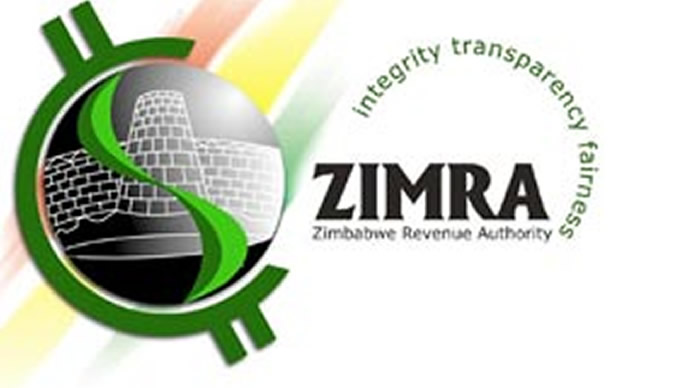


THE Zimbabwe Revenue Authority (ZIMRA) has failed to collect over US$500 million in taxes between 2009 and 2012, prejudicing government which is battling to meet its financial obligations, the Financial Gazette can report. The development could give the clearest indication why ZIMRA, government’s tax collection agency, embarked on a tax collection blitz last year that targeted businesses that had either defaulted on tax payments or clearly evaded meeting their tax obligations.
The development could give the clearest indication why ZIMRA, government’s tax collection agency, embarked on a tax collection blitz last year that targeted businesses that had either defaulted on tax payments or clearly evaded meeting their tax obligations.
According to the latest audit report on government finances done by auditor-general, Mildred Chiri, the outstanding revenue amounted to US$508 224 725 as at December 31, 2013, with over US$240 million representing debts outstanding as far back as 2009.
The report, released this year, is for the financial year to December 31, 2013.
“The (outstanding) amount was owed by ZIMRA clients who had not fulfilled their obligations,” the report said, indicating that there was now a greater risk that the US$240 million “may not be recovered due to the lapse of time”.
It was not immediately clear how far the authority had gone towards mopping up funds from defaulting taxpayers, but the auditor general said the taxman had indicated that some companies that owed them in respect of unpaid taxes were no longer operating and ZIMRA had no authority to write off the debts.
“Treasury should work together with ZIMRA to address the issue of companies that have ceased operations but still owe the government taxes,” said the auditor general.
She said steps should be taken to recover outstanding revenue so that there is no financial prejudice to government.
A fortnight ago, ZIMRA’s commissioner- general, Gershem Pasi, said net collections for the full-year to December 31, 2014, at US$3,6 billion, were six percent below the target of US$3,8 billion.
“Fourth quarter net collections were US$996,94 million against a target of US$1,11 billion,” Pasi said.
“This translates to a negative variance of 10 percent.”
Pasi confirmed that collapse of industries as well as a liquidity crisis had paralysed State finances.
The Ministry of Finance and Economic Development estimates that about 4 600 firms closed during the period, denting corporate tax revenue, as well as Pay As You Earn, Value Added Tax and related fees and charges.
“Revenues were suppressed by liquidity challenges, company closures and scaling down of operations,” said Pasi, who has been under pressure from the Ministry of Finance to tackle the crisis and save government operations from grinding to a halt.
The trading environment has deteriorated, with nearly all companies struggling to stay afloat due to depressed demand and the inability by cash-strapped customers to pay for goods and services on time.
The result has been an unhealthy working capital situation that has seen most companies lagging behind with payments for their raw materials and other inputs, salaries, medical aid and pension contributions as well as statutory payments such as taxes.
Regardless, ZIMRA has been demanding its dues amid fears that laxity could result in government defaulting on crucial obligations.
These include servicing the public debt, which has been galloping towards the US$10 billion mark, rehabilitating ageing infrastructure and paying civil servants salaries.
The auditor general also noted that there were discrepancies between returns from Treasury and audited returns from line ministries.
These were in respect of the Ministry of Public Service, the Judicial Service Commission and ZIMRA.
The Ministry of Finance had only received 68 percent of returns from ministries and other government departments, the audit said.
Chiri said the Ministry of Finance had indicated that returns submitted by ZIMRA to the Ministry had been “under-cast” as ZIMRA had not included outstanding revenue from the large tax payers’ office.
“ZIMRA has since provided a Debtors Age Analysis as at December 31, 2012, showing receivables amounting to US$508 224 724, which tallies with the audited figure. Treasury will make a follow up to ensure that ZIMRA recovers the outstanding revenue,” the Ministry told auditors.
Government has failed to trim its bloated waistline and adjust its priorities to suit the tough economic climate.
Its expenditure far exceeds what it has been generating in terms of revenue from penalties, taxes, grants, donations and foreign direct investments hence sustaining its appetite for cash is presenting serious headaches for ZIMRA.
The government’s revenue collection base has been shrinking on the back of the de-industrialisation that has scaled up retrenchments, especially in the key manufacturing sector, where capacity utilisation declined to about 33 percent in 2014, from about 44 percent in 2012.
To force companies to pay their tax arrears, ZIMRA last year gave a tax amnesty on defaulters, which became effective on October 1, 2014 and will expire on March 31, 2015.
It will grant amnesty in respect of non-compliance which occurred during the period beginning February 1, 2009 and September 30, 2014, during which period tax payers with outstanding obligations can voluntarily inform ZIMRA about their positions.
The amnesty will give taxpayers who acknowledge their tax obligations or irregularities amnesty on penalties, interest and prosecution for non-payment and other irregularities in connection with all taxes administered by ZIMRA.
Economists this week said while the amount of revenue outstanding would ordinarily transform the economy if realised, this was unlikely to happen because of the nature of government expenditure which was skewed towards consumptive spending.
“Government’s expenditure mix is wrong,” said economist, Brains Muchemwa.
“Even if this revenue was collected, it would go towards recurrent expenditure, such as paying salaries,” he said.
Godfrey Kanyenze, an economist at the Labour and Economic Development Research Institute of Zimbabwe, said profligacy and misplaced priorities in central government was gnawing at State resources.
“We are not serious about development at all,” said Kanyenze.
“It is not only the loss of revenue; we are losing the manufacturing sector, which is critical for economic growth. Eighty-four percent of jobs are now in the informal sector. Very few companies are exporting, the railway system is as good as dead and we are rapidly de-industrialising,” Kanyenze said.
Charles Msipa, president of the Confederation of Zimbabwe Industries, said what worried his membership was that while ZIMRA was squeezing firms, government was among the biggest debtors to the private sector.
“What is very worrying is that government owes companies for goods and services supplied,” he said.
“Yet government says the same companies that have not been paid must pay taxes. I have proposed a moratorium for garnishes for companies that government has not paid,” Msipa added.
newsdesk@fingaz.co.zw